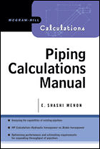How to identify ideal sales talent.
The chosen ones.

Let’s face it. Salespeople represent the future of your company.
Outstanding salespeople produce outstanding results. Weak salespeople produce weak results. Incompetent salespeople generally fail long before we recognize them and replace them. To be successful in growing sales in your organization you need to define and hire the ideal sales talent for your industry.
Many books have been written about sales effectiveness, recruiting salespeople and many other sales-related titles. In fact, I have written several sales books myself. Reading sales books and staying current is a good thing but no sales book is going to bring the ideal sales talent to your organization. You have to find them, recruit them and then retain them. So, how do we define the ideal sales talent? Let’s start by describing the kind of salespeople that have proven through the years to be exceptional in their performance.
The Hunter:This is the type of salesperson that goes after the big fish. Closing the deal with large accounts is not only exciting, but it can be, short of family, the most gratifying experience in their life. The Hunters are meticulous in their preparation and will continuously consider their information stream on contacts, research and leads to put themselves in a position to be the vendor of choice. They never rest on their laurels and the next big sale is a gratifying challenge to their competitive nature.
The Farmer:Most salespeople fall in this category. Their primary focus is to look after existing accounts, maintain current levels of sales and grow some new business each year. Except by chance, farmers don’t usually generate a large amount of growth because of their focus on maintaining existing business.
Sales discipline:This trait is paramount to success just as follow-up is one of the most essential acts associated with sales success and high close rates. Most successful salespeople actually develop follow-up strategies.
Total solutions provider:Nowadays, salespeople must be problem solvers able to generate solutions for customers in their time of need. Therefore, they must possess a great deal of knowledge about their customers’ business. They must define what those needs are because the customer may not know or take the time to explain if they do know.
Customers want you to have the knowledge and intelligence to comprehend and analyze their problems before showing up at the door. Customers will listen and buy from the salesperson that finds the “pain” and takes it away. Solution sellers view themselves not as salespeople but as consultants/problem solvers.
Intelligence, charisma & drive
A salesperson with ideal talent will command a presence when he or she walks into the room. They are intelligent and personable, and rejection to them is simply a challenge. They are competitive and won’t accept the concept of losing. They get themselves in front of the right people, uniquely at the right time, and they know the right things to say. This talent is based on the ability to quickly gain trust, respect and build strong relationships with customers.
Tenacity:Similar to drive, an ideal talent sales persona must be tenacious in the desire to succeed. He or she is bullheaded with respect to never giving up, takes lost business personally and analyses what needs to be done to not repeat failure but increase success. He or she doesn’t whine about price competitiveness and believes only weak salespeople sell price which through sales expertise gives him/her the competitive advantage.
Sales representatives are successful today because they gain the majority of their targeted customers’ business. They manage the relationship and continuously build relationship equity. That doesn’t mean they operate with the old lone wolf mentality of doing everything under the sun for the customer.
They are successful because they take full advantage of all the resources their company has to offer. Transactions and promos flow through a managed relationship. They also dedicate a specific amount of their time to new account development and penetration of those accounts with high potential rather than over-providing service functions to existing accounts.
Emerging role of the sales pro
Remember the emerging role of the sales professional today is not to increase sales. Let me repeat that. Your role today is not to increase sales. Your role as a sales professional today is to systematically and consistently increase the number of customers who choose you to be their No. 1 supplier.
You must bring every resource your company has into play and leverage those resources to create competitive advantage. Learn to listen exceptionally well to your customers.
Let them talk and when there seems to be a pause in the conversation resist the temptation to start talking again. Chances are good the customer has more to say. The quieter you are the more they will tell you.
Listen long enough with a few strategically placed questions and the customer might just tell you exactly how to gain his business. Ask sincere open-ended questions aimed at finding the root cause of the problem (the customer’s pain) so you can provide a solution.
This is not accomplished by resorting to the complex closing techniques you may have learned in the old days in sales school. Solution selling is about honest and sincere empathy for a customer’s problems and searching for the right solutions.
Once you find the pain and develop the right solution the sale is made. There are no objections for you to overcome. Price is rarely an issue and the request for a proposal is generally a formality.
Personally, if I am not convinced a customer is sold and ready to buy, I won’t even do a proposal. It’s just too much work if you haven’t found both the pain and the solution to relieve that pain.
Practice your questioning skills. The power of the answers often is found in the questions. But remember, it’s very difficult to even begin to ask the right questions if you haven’t developed your listening skills. A few tips:
· Go slow – not fast. Let the customer say everything he has to say. There is nothing wrong with a pause.
· Don’t fake anything. If you don’t know, say you don’t know.
· Build relationships, be funny at appropriate times and show real concern and interest in your customers’ issues.
· Think of yourself as helping the customer buy not as if you are trying to sell him something.
Don’t ever forget, you are a professional doing what you love to do. So be proud that you are a salesman or saleswoman. It is a great profession.
HELPFUL LINKS:
Looking for a reprint of this article?
From high-res PDFs to custom plaques, order your copy today!






